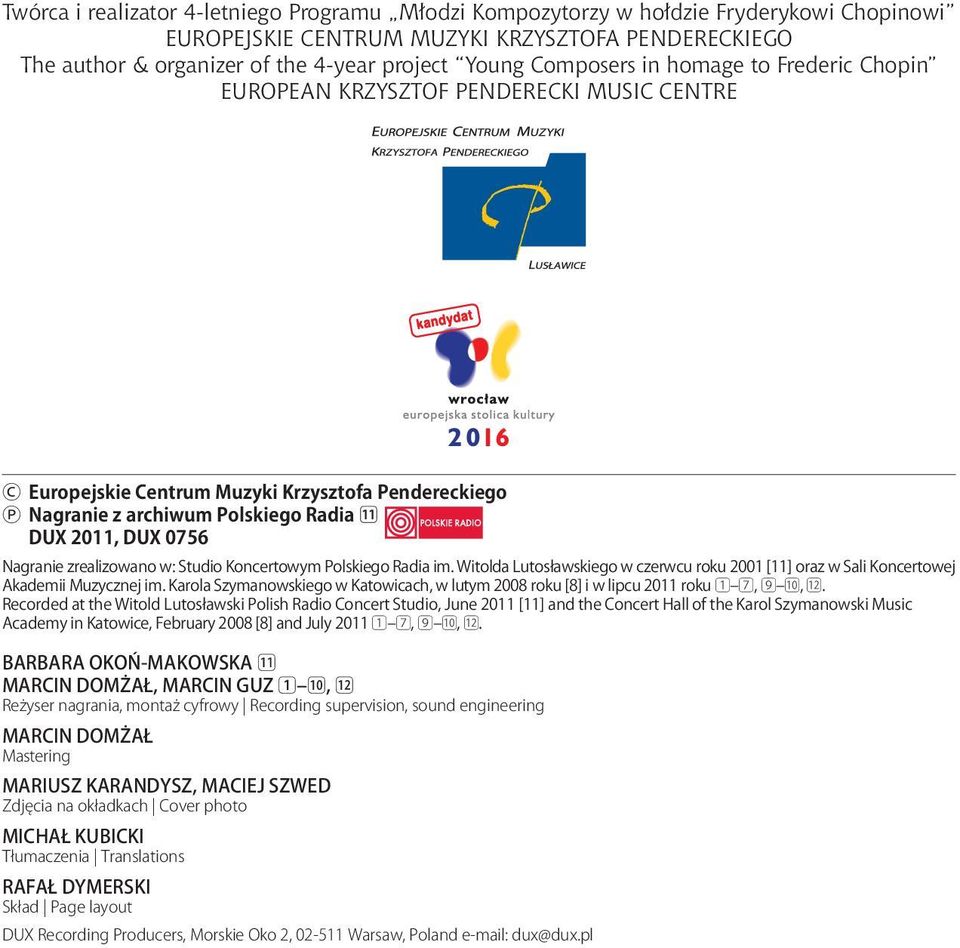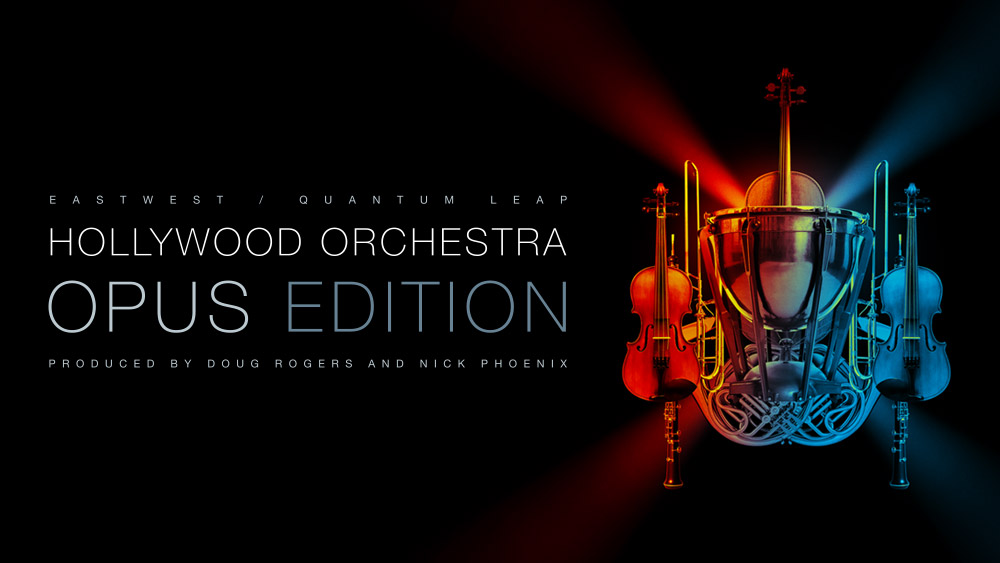

If I would be born in New Zealand, maybe, I would never write the Polish Requiem or pieces which were connected with the history of war. In a 2013 interview for the Louisiana Channel, an online video channel run by the Louisiana Museum of Modern Art in Denmark, he said: “I was not living in easy times. What troubled his imagination was the past. He had as many commissions as he could handle, and enjoyed a lucrative overlapping career as conductor of the Krakow Symphony and frequent guest conductor abroad.īesides his wife of more than 50 years, Elzbieta, he is survived by their children, Lukasz and Dominika, and a daughter from his first marriage, Beata. In the end, the critics didn’t much like it. Penderecki envisioned something grand: a kind of oratorio-opera drawn from Milton’s epic “Paradise Lost,” with an English libretto by Christopher Fry using much of the original text.Īlas, it could not be done in time for the Bicentennial: the premiere was delayed until November 1978.

While American composers fumed over the choice of a foreigner to do the job, the fearless Mr. Sometimes he was famous for the wrong reasons, like missing due dates, as with his commission from the Lyric Opera of Chicago to write a new work for the American Bicentennial in 1976.

Penderecki was pleased: Nine thousand young people packed the auditorium at the first performance, in Wroclaw, “and they had never heard about this old guy Penderecki’s music.” Greenwood’s work for strings, “48 Responses to Polymorphia.” Mr.
#EWQLSO PENDERECKI SERIES#
Penderecki’s hand “like a sad fanboy.” They later pursued a collaboration culminating in 2011 with a series of concerts that included both “Polymorphia” and Mr. Greenwood, in his words, went to shake Mr.
#EWQLSO PENDERECKI MOVIE#
Greenwood’s own score for the movie “There Will Be Blood,” for example, features his “Popcorn Superhet Receiver,” a work directly inspired by the Hiroshima threnody.Īccording to an account in The Guardian, the two composers first met after a concert, when Mr. But his influence is most directly evident in the music of Jonny Greenwood, the classically trained guitarist of Radiohead. Artists as disparate as Kele Okereke of Bloc Party and Robbie Robertson of the Band professed to have been inspired by him. Penderecki also appealed to many a pop musician.

Penderecki dedicated it to the victims of Hiroshima only after hearing the piece performed. Following a score that often looks more like geometry homework than conventional notation, it forces an ensemble of 52 string instruments to produce relentless, nerve-jangling sounds that can suggest nuclear annihilation. The threnody, in particular, is a much-studied example of startling emotional effects created from abstract concepts. Luke Passion” (1966) that brought him lasting international recognition while he was still a young man. Still, it was compositions from the wild first decade of his career, including “Threnody for the Victims of Hiroshima” (1960), “Polymorphia” (1961) and the “St. But it was also artistic: Experimentation had reached an impasse, he told a Canadian interviewer in 1998, because “we discovered everything!”) (His decision to move on was partly political: The Polish avant-garde movement had created an unhealthy illusion of freedom in a country living under Communism, he said. Those ideas would reverberate for decades after he himself had pronounced them “more destructive than constructive” and changed course toward neo-Romanticism. Penderecki was most widely known for choral compositions evoking Poland’s ardent Catholicism and history of foreign domination, and for his early experimental works, with their massive tone clusters and disregard for melody and harmony. Beginning in the 1960s with radical ideas that placed him firmly in the avant-garde, he went on to produce dozens of compositions including eight symphonies, four operas, a requiem and other choral works, and several concertos he cheerfully described as being almost impossible to play.Īmong those who could were the violinist Anne-Sophie Mutter and the cellist Mstislav Rostropovich, whose recordings of the concertos he wrote for them won Grammy Awards in 19, respectively Penderecki was regarded as Poland’s pre-eminent composer for more than half a century, and in all those years he never seemed to sit still. His death was confirmed by Andrzej Giza, the director of the Ludwig van Beethoven Association, which was founded by Mr. Krzysztof Penderecki, a Polish composer and conductor whose modernist works jumped from the concert hall to popular culture, turning up in soundtracks for films like “The Exorcist” and “The Shining” and influencing a generation of edgy rock musicians, died on Sunday at his home in Krakow.


 0 kommentar(er)
0 kommentar(er)
